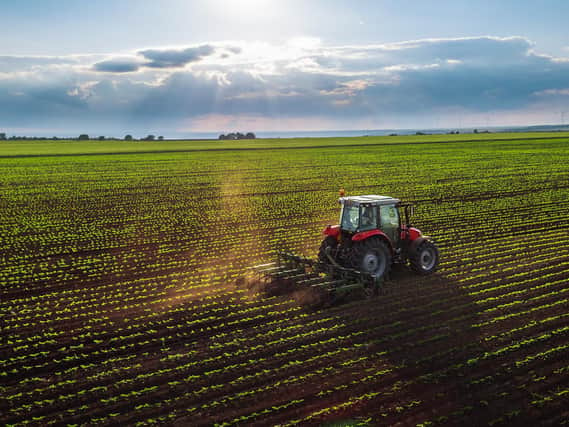Paying farmers to look after their soil could help with environmental issues according to Royal Society report


Warning that poorly-managed soils which are compacted or eroding can reduce yields, contribute to floods and hit water quality, the report also said that many farmers are already taking care of soils. But, it said, while this is delivering benefits, it can come with costs for which they are not reimbursed.
However, the Agriculture Bill, now working its way through Parliament, sets out the new Environment Land Management Scheme (ELMS) which is based on ‘public money for public goods’ and will replace the EU’s Common Agricultural Policy subsidy payment scheme.
Advertisement
Hide AdAdvertisement
Hide AdThe new ELM Scheme includes provision for paying farmers to protect or improve soil quality, alongside other environmental measures including air and water quality and climate change measures such as carbon capture.
The experts behind the report, said soil is often treated as “out of sight, out of mind” but people should be as appalled by badly managed soils as they are by loss of woods or wetlands.
The report highlights the way soil can act as natural flood management by increasing the amount of water seeping into the ground and storing water through its uptake into root systems, but compacted soils prevent this.
Good soil “structure” can improve yields by providing a habitat for earthworms and other organisms which recycle nutrients and prevent erosion.
Advertisement
Hide AdAdvertisement
Hide AdHealthy soil supports plants and animals above the ground and helps control pests and diseases, the report said.
It also looked at how huge amounts of carbon from plants and other organic matter is trapped and stored in soils, so managing them well makes them more productive and helps in the fight against climate change.
Professor Alastair Fitter, emeritus Professor of Ecology at the University of York and a lead Royal Society Fellow on the report, said: “We should be as appalled by badly-managed soils in our fields as we are by the loss of our woods or wetlands. Our soils lock away more carbon than the vegetation on them, they provide 95 per cent of our food, and when managed well they limit the risk of flooding, while supporting a vast array of life.
“Too often, though, they are ‘out of sight, out of mind’.”
He added: “The Government is at a critical moment in setting the course for British farming outside the EU and this evidence synthesis shows how important it is that soils take centre stage in land management policy.”
Advertisement
Hide AdAdvertisement
Hide AdThe report outlined the need for measures including planting cover crops which act not as a cash crop but one which improves the soil, planting grass leys in rotation, more hedges, and developing small wetlands alongside crops or pasture.
Taking into account the wide variety of soils across the UK and the way they are used, the report said a menu of evidence-based options will be needed for payments so land managers can pick the methods that suit their land.
It also said any system for managing soils better is likely to require more training and support for farmers, technology such as drones, which can assess soil health and GPS-guided machinery to limit soil compaction.
Editor’s note: first and foremost - and rarely have I written down these words with more sincerity - I hope this finds you well.
Advertisement
Hide AdAdvertisement
Hide AdAlmost certainly you are here because you value the quality and the integrity of the journalism produced by The Yorkshire Post’s journalists - almost all of which live alongside you in Yorkshire, spending the wages they earn with Yorkshire businesses - who last year took this title to the industry watchdog’s Most Trusted Newspaper in Britain accolade.
And that is why I must make an urgent request of you: as advertising revenue declines, your support becomes evermore crucial to the maintenance of the journalistic standards expected of The Yorkshire Post. If you can, safely, please buy a paper or take up a subscription. We want to continue to make you proud of Yorkshire’s National Newspaper but we are going to need your help.
Postal subscription copies can be ordered by calling 0330 4030066 or by emailing [email protected]. Vouchers, to be exchanged at retail sales outlets - our newsagents need you, too - can be subscribed to by contacting subscriptions on 0330 1235950 or by visiting www.localsubsplus.co.uk where you should select The Yorkshire Post from the list of titles available.
If you want to help right now, download our tablet app from the App / Play Stores. Every contribution you make helps to provide this county with the best regional journalism in the country.
Sincerely. Thank you.
James Mitchinson
Editor